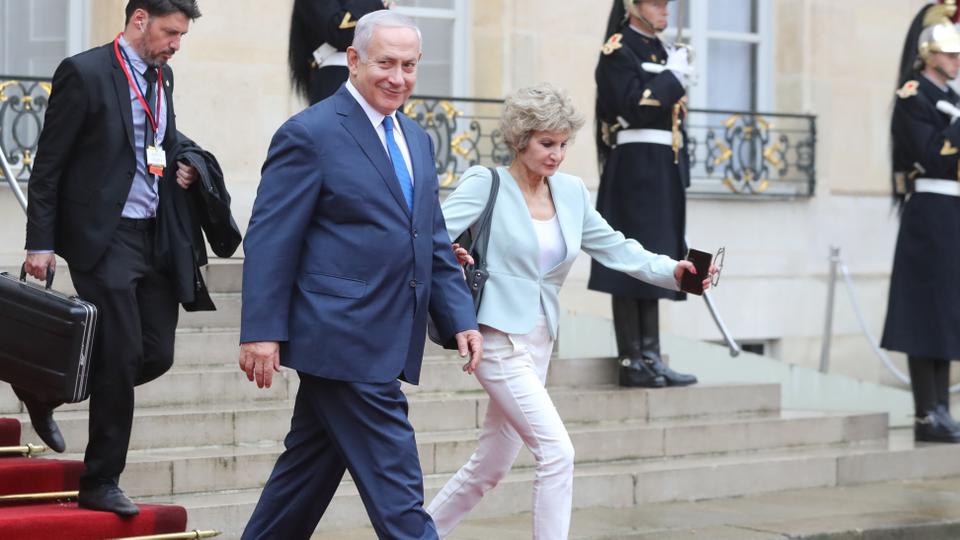Israel’s Netanyahu weighs moves after Lieberman resignation
Prime Minister Benjamin Netanyahu plots next moves as defence minister Avigdor Lieberman resigns unhappy over ceasefire in blockaded Gaza, leaving Netanyahu clinging to a one-seat majority in parliament.

Israeli Prime Minister Benjamin Netanyahu plotted his next moves on Thursday after his defence minister resigned over the Gaza ceasefire, throwing his coalition into crisis and raising the possibility of early elections.
After Avigdor Lieberman announced his resignation on Wednesday, Netanyahu was clinging to a one-seat majority in parliament.
The far-right party of Education Minister Naftali Bennett, one of Netanyahu’s main rivals, demanded on Wednesday he be given the defence portfolio or its eight seats would be withdrawn from the coalition.
In a speech on Thursday, Bennett did not reiterate the threat, but made his case for why he should be defence minister.
“The most dangerous thing for the state of Israel is that we begin to think that there is no solution to terrorism, to terrorists, to missiles,” said Bennett, who heads the Jewish Home party.
“There is a solution. When Israel wants to win, we will win.”
Stable government
Netanyahu and Bennett were reportedly set to meet on Friday, but there were increasing signs the coalition’s days may be numbered.
Another key coalition partner, Finance Minister Moshe Kahlon of centre-right Kulanu, reportedly told Netanyahu elections should be called because a stable government was needed to keep the economy on track.
Netanyahu was seeking to contain the political fallout of his decision to accept a ceasefire deal on Tuesday that ended the worst escalation between Israel and blockaded Gaza since a 2014 war.
Lieberman said it was “capitulating to terror” when announcing his resignation and also criticised Netanyahu’s recent decision to allow Qatar to send millions of dollars in aid to the blockaded Palestinian enclave.
Beyond that, there have been protests calling for tough action against Hamas – which governs Gaza – by Israelis living near the Israel-Gaza fence whose communities were targeted by barrages of rockets from Gaza this week following a botched Israeli attack inside the Palestinian enclave.
A poll published on Thursday found 74 percent of respondents were unhappy with Netanyahu’s handling of the escalation with Gaza and Hamas, though it also showed his party would still win the most seats.
Giving further ammunition to Netanyahu’s political critics, Hamas has portrayed the ceasefire and Lieberman’s resignation as a victory.
‘Mr Security’
Netanyahu’s popularity is in large part due to his reputation as Israel’s “Mr Security”, as he has often been dubbed, and he has defended his decision saying, “Our enemies begged for a ceasefire.”
His Likud party has hit back at suggestions he will be forced to call elections soon, saying Netanyahu will take over the defence portfolio at least temporarily – in addition to the premiership, foreign affairs and health portfolios he already has.
A Likud spokesman said Netanyahu was continuing consultations on Thursday aimed at stabilising his coalition.
Netanyahu did not publicly comment on the coalition crisis, but said in reference to Gaza that “we are in the middle of a campaign.
“Patience, cool and determination are necessary,” he said. “We are preparing for what comes next.”
Corruption charges
There has long been speculation that Netanyahu may call elections before they are due in November 2019, particularly with police having recommended charges against him in two corruption probes.
The attorney general is expected to announce in the coming months whether to pursue charges against him, and some analysts believe he would be better positioned to combat them with a fresh electoral mandate.
But Netanyahu would want to make the move at the most advantageous time and likely not with public attention focused on the Gaza ceasefire.
The Gaza violence had erupted on Sunday with a botched Israeli special forces operation inside the territory that turned deadly and prompted Hamas retaliation.
The blown operation killed seven Palestinians, including a local Hamas military commander, as well as an Israeli army officer.










